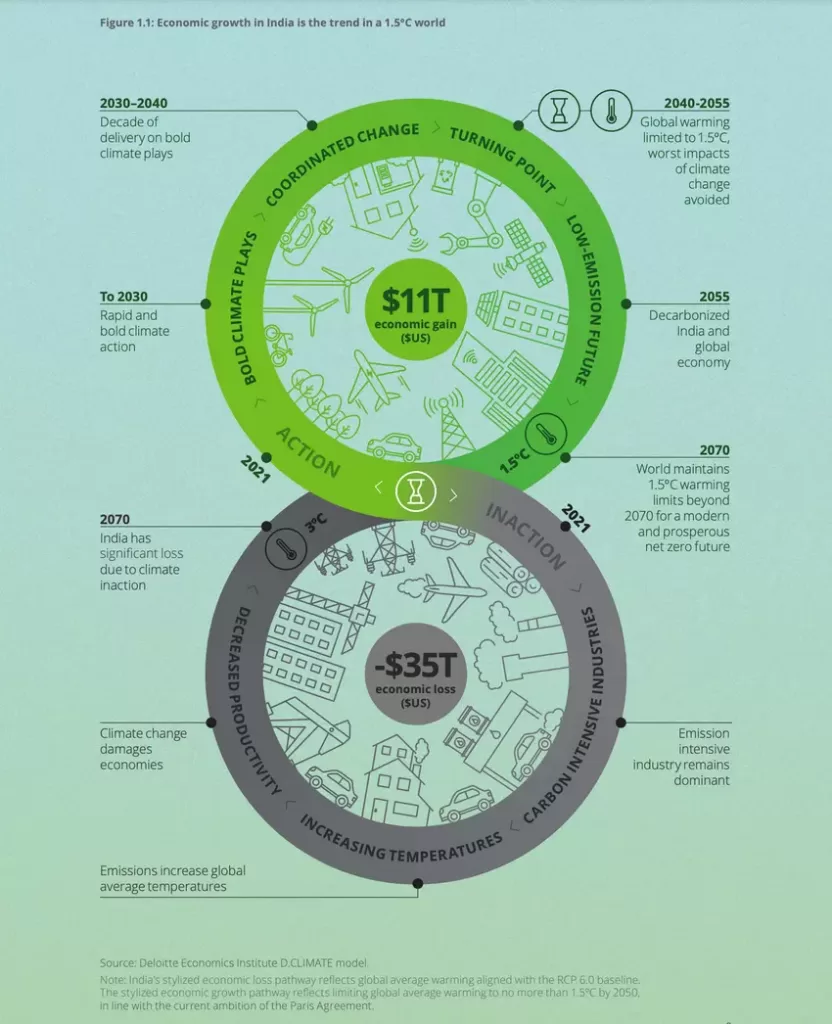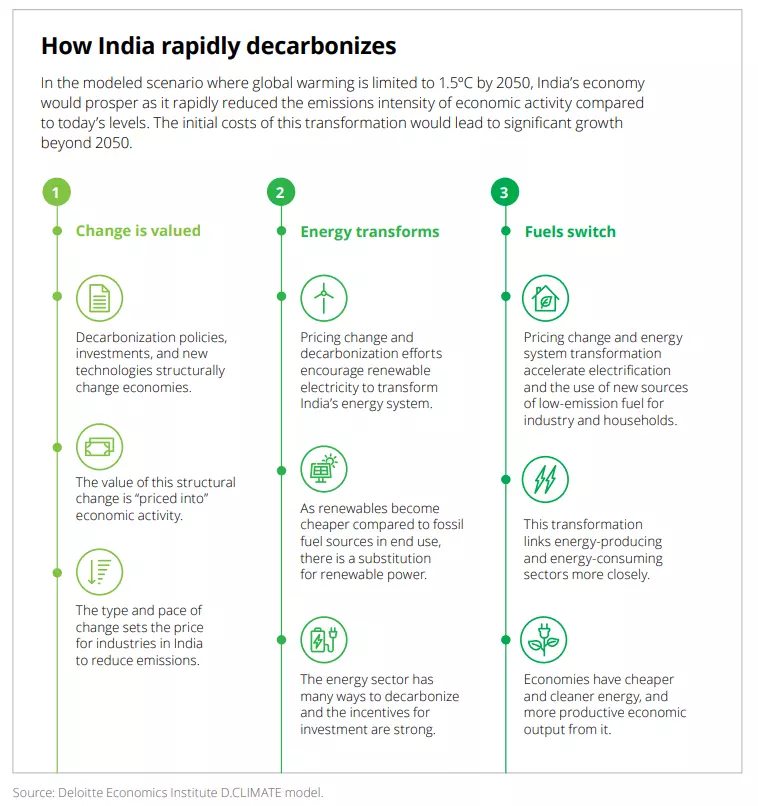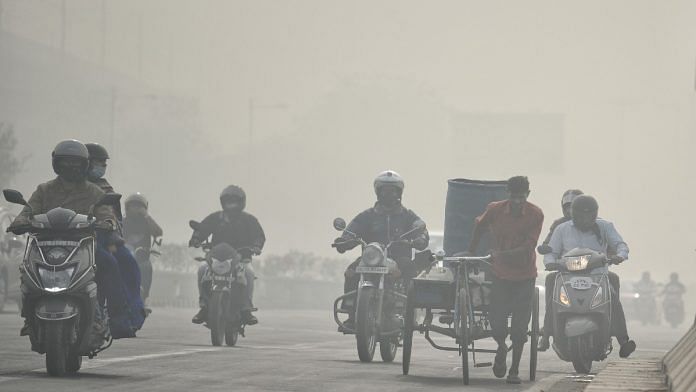India can lead the way on climate action and prosper, or do nothing and “impose steep economic costs” – as well as the continuing human and environmental cost – on the country, according to a new report.
Leaving climate change unchecked could cost India $35 trillion in lost economic potential over the next 50 years, finds the Deloitte Economics Institute in its report, India’s turning point: How climate action can drive our economic future.
Or instead, India could gain $11 trillion in economic value – by limiting rising global temperatures and exporting the climate solutions it has already developed to the rest of the world.

The human and environmental cost
For India, a rise of 3C or more in average global temperatures by the end of the century will “make it harder for people to live and work, as sea levels rise, crop yields fall, infrastructure is damaged, and other challenges emerge,” Deloitte warns.
Climate-related disasters in the country have increased in recent years and the Intergovernmental Panel on Climate Change recently warned that India is set for more extreme heat waves, monsoons and droughts if it continues on its current trajectory.
Other studies point to the negative impacts of air pollution, which kills more than 1 million people a year. It is also thought to shorten lifespans by more than nine years for around 4 in 10 Indians.
Also read: Rich nations aren’t pooling in the big bucks to help poorer nations tackle climate change
Transitioning to a green economy
As well as the immediate cost to lives and livelihoods, a 3C or more scenario could threaten India’s progress and prosperity in recent decades, and cost the five most impacted industries $1.5 trillion a year by 2070. These account for more than 80% of India’s GDP and are services, manufacturing, retail and tourism, construction, and transport.
Climate change globally is the biggest long-term threat to the economy, according to the Climate Economics Index from Swiss Re Institute.
By 2050, the world economy could lose up to 18% of its GDP if temperatures increase by 3.2C.
The good news is that India is well positioned to help the world transition to a green economy, and could achieve “significant economic growth” by supplying the products, services and financing the world will need to limit temperature increases, Deloitte says.
Companies in India are already leading producers of advanced climate solutions.
“These include green hydrogen and negative-emission solutions, both natural and technological,” Deloitte says.

Towards a sustainable future
It’s therefore not too late to limit average global temperature rises to around 1.5C by 2050, Deloitte says. This would minimize the impact of climate change for India and the rest of the world. But to achieve this, there would need to be bold and rapid actions over the next decade by governments, businesses and communities.
How to accelerate climate action is one of the central themes to be addressed at the World Economic Forum’s Sustainable Development Impact Summit 2021, from 20-23 September.
Leaders and experts across sectors will share technologies and solutions to global challenges and create innovative policy recommendations and action plans. They will also advance partnerships and alliances that tackle pressing and emerging issues.
Victoria Masterson, Senior Writer, Formative Content
This article was originally published on the World Economic Forum (WEF). You can read it here.
Also read: India should commit to net-zero emissions, but not by 2050, climate expert says



